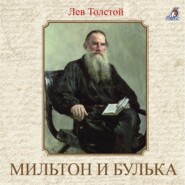По всем вопросам обращайтесь на: info@litportal.ru
(©) 2003-2025.
✖
What Shall We Do?
Настройки чтения
Размер шрифта
Высота строк
Поля
A very commonplace English writer, whose books are now almost forgotten and recognized as the emptiest of all empty ones, wrote a tract upon population, in which he invented an imaginary law that the means of living do not increase with the increase of population. This sham law the author dressed out with the formulæ of mathematics which have no foundation whatever, and published it. Judged by the lightness of mind and the want of talent displayed in this treatise we might have supposed that it would have passed unnoticed and been forgotten as all other writings of the same author have been; but it turned out quite differently. The author who wrote it became at once a scientific authority, and has maintained this position for nearly half a century. Malthus! The Malthusian theory, – the law of the increase of population in geometrical progression, and the increase of means of living in arithmetical progression, and the natural and prudent means of restraining the increase of population, – all these became scientific, undoubted truths which have never been verified, but, accepted as axioms, have served for further deductions.
Thus learned and educated men were deceived; whereas in the crowd of idle men there was a blind and religious trust in the great laws discovered by Malthus. How did this happen? These statements seem to be scientific deductions which have nothing in common with the instincts of the crowd.
But they are only sacred to those who believe science to be something self-existent and infallible, like the Church, and not merely the thoughts of weak men liable to mistakes, who only for importance' sake call their own thoughts and words by a pompous word, science. It was only necessary to draw practical conclusions from the Malthusian theory in order to see that it was quite a human one with very determinate aims.
The deductions which were directly drawn from this theory were the following: The miserable condition of working-people does not come from the cruelty, egotism, and unreasonableness of rich and powerful men, but it exists according to an unchangeable law which does not depend upon man, and, if anybody is to blame, it is the starving working-people themselves: why do these fools come into the world when they know that they will not have enough to eat? and therefore the wealthy and powerful classes are not at all to blame for any thing, and they may quietly continue to live as they have done.
This conclusion, being pleasant to the crowd of idle men, induced the learned dons to overlook the incorrectness and total arbitrariness of the deductions; and the crowd of educated, i.e., idle people, instinctively guessing to what these deductions led, greeted the theory with delight, set upon it the seal of truth, and cherished it during half a century. The reason for all this was, that these doctrines justified men in their bad mode of life.
Is not the same cause at the bottom of the self-assurance of men of the new positive, critical, experimental science, and of the reverent regard of the crowd to what they preach? At first it seems strange that the theory of evolution (like the theory of atonement in theology, it serves for the majority of men as a popular expression of the new teaching) should justify men in their false lives, and it would seem that the scientific theory has only to do with facts, and does nothing but observe facts. But it only seems so.
It had been so with theological teaching; theology seemed to be occupied only with doctrines and to have nothing to do with the lives of men. It had been so with philosophy, which also seemed to be occupied only with facts.
It had been so with the teaching of Hegel on a large scale, and with the theory of Malthus on a small one. Hegelianism seemed to be occupied merely with its logical constructions and to have nothing to do with the lives of men; and the theory of Malthus seemed to be occupied exclusively with statistics.
But it only seemed so.
Modern science also claims to be occupied exclusively with facts: it studies facts.
But what facts? Why some facts and not others?
The disciples of the modern science are very fond of saying with a solemn assurance, “We study facts alone,” imagining that these words have some meaning.
To study facts alone is quite impossible, because the number of facts which may be objects of our study, are, in the strict sense of the word, countless.
Before beginning to study facts, one must have some theory according to which the facts are studied; that is, determining which shall be selected from the countless number of facts. And this theory indeed exists and is even very definitely expressed, though many of the agents of modern science ignore it; that is, do not want to know it, or really do not know it; – sometimes pretend not to know it.
Thus matters stood before with all most important beliefs.
The basis of each is always given in theory; and so-called learned men seek only further deductions from the various bases given to them, though sometimes they ignore even these.
But a fundamental theory must always be present, and so it is also now. Modern science selects its facts on the ground of a determinate theory, which sometimes it knows, sometimes does not wish to know, sometimes really does not know; but which exists. The theory is this: Mankind is an undying organism, having each his special calling for the service of the whole. As the cells, growing into an organism, divide among themselves the labour of the struggle for existence of the whole organism, increase one capacity, and diminish another, and all together form an organ in order better to satisfy the wants of the whole organism; and as among social animals, – ants and bees, – the individuals divide the labour among themselves (queen-bees lay eggs, drone-bees fecundate, working-bees labour for the life of the whole), – so also in mankind and in human societies there take place the same differentiation and integration of the parts. And therefore, in order to find the law of man's life, we must study the laws of the lives and development of organisms. And in these we find the following laws: That each phenomenon is followed by more than one consequence. The failure of uniformity. The law of uniformity and diversity; and so on.
All this seems to be very innocent, but we need only draw deductions from these observations of facts in order to see at once to what they are tending. These facts lead to one thing, – the acknowledgement of humanity or human society as an organism, and hence to the acknowledgment of the division of activities in human society as organic, that is necessary; and as there exist in human societies many cruelties and vices, therefore these phenomena must not be considered as cruelties and vices, but must be accepted as inevitable facts confirming a general law – i.e., that of “division of labour.” Moral philosophy used also to justify every cruelty and wickedness; but there it became philosophical, and therefore incorrect. According to science, however, the same thing turns out to be scientific, and therefore unquestionable.
How can we help accepting such a fine theory! We need only look at human society merely as something to be observed, and we may quietly devour the labour of perishing men, calming ourselves with the idea that our activity as a dancing-master, a lawyer, a doctor, a philosopher, an actor, an investigator of the theory of mediumism and of forms of atoms, and so on, is a functional activity of the organism of mankind and therefore there can be no question whether it is just that I should continue to live doing only what is pleasant, just as there can be no question whether the division of labour between a mental and a muscular cell is fair or not. How can we help accepting such a nice theory which enables us afterwards to put our consciences into our pockets forever, and live a completely unbridled, animal life, feeling under our feet a firm, scientific support? And it is upon this new belief that the justification of idleness and the cruelty of men is built.
CHAPTER XXX
This doctrine had its commencement about half a century ago. Its chief founder was the French philosopher Comte. Comte, being a lover of systematic theory, and at the same time a man of religious tendency, was impressed by the then new physiological researches of Bichat; and he conceived the old idea, expressed in bygone days by Menenius Agrippa, that human societies, indeed all human-kind, may be regarded as one whole, An Organism, and men – as live particles of separate organs, each having his definite destination to fulfil in the service of the whole organism.
Comte was so fascinated by this idea that he founded his philosophical theory on it; and this theory so captivated him that he quite forgot that his point of departure was no more than a pretty comparison, suitable enough in a fable, but in no way justifiable as the foundation of a science. As it often happens, he took his pet hypothesis for an axiom, and so imagined that his whole theory was based upon the most firm and positive foundations.
According to his theory it appeared that, as mankind is an organism, therefore the knowledge of what man is and what his relation to the world ought to be, is only possible through the knowledge of the properties of this organism. And to be able to learn these properties man is fitted to make observations upon other lower organisms and to draw deductions from their lives.
Therefore, first, the true and exclusive method of science, according to Comte, is the inductive one, and science is only science when it has experiment for its basis. Secondly, the final aim and the summit of science becomes the new science concerning the imaginary organism of Mankind, or the organic being, – Mankind. This new hypothetic science is Sociology. From this view of science it generally turns out that all former knowledge was false, and that the whole history of mankind, in the sense of its self-consciousness, divides itself into three, or rather two, periods. First, the theological and metaphysical period, from the beginning of the world to Comte. And, secondly, the modern period of true science, positive science, beginning with Comte.
All this was very well, but there was one mistake in it, which was this: that all this edifice was built on the sand, on an arbitrary (and incorrect) assertion that mankind, collectively considered, was an organism.
This assertion is arbitrary because, if we are to acknowledge the existence of mankind as an organism, which is beyond observation, we might as well acknowledge the existence of the triple God and similar theological propositions.
It was incorrect, because to the idea of mankind, that is, of men, the definition of an organism was added, whereas man lacks the essential characteristics of an organism, – a centre of sensation or consciousness. We call an elephant, as well as a bacterium, organisms, only because we suppose by analogy in these beings that there is unification of sensations, or consciousness. But human societies and mankind lack this essential; and therefore, however many other general character-signs we may find in mankind and in an organism, – without this, the assertion that man is an organism is incorrect.
But notwithstanding the arbitrariness and incorrectness of the fundamental proposition of Positive Philosophy, it was accepted by the so-called “Educated World” with great sympathy, because of that great fact, important for the crowd, that it afforded a justification of the existing order of things by recognizing the lawfulness of the existing division of labour; that is, of violence in mankind. It is remarkable in this respect that from the writings of Comte, composed of two parts, – a Positive Philosophy and a Positive Politics, – only the first part was accepted on new experimental principles by the learned world, that which justified the existing evil in human society. The second part, treating of the moral, altruistic duties, following from this recognition of mankind as an organism, was considered not only unimportant but even unscientific.
Here the same thing was repeated which occurred with the two parts of Kant's writings. The “Critique of Pure Reason,” was accepted by science; but the “Critique of Practical Reason,” that part which contains the essence of moral doctrine, was rejected. In the teaching of Comte, that was recognized to be scientific which humoured the reigning evil.
But the Positive Philosophy accepted by the crowd, based on an arbitrary and incorrect supposition, was by itself too ill-grounded, and therefore too unsteady, and could not be sustained by itself.
And now, among the idle play of ideas of so-called “Men of Science,” there has appeared a similarly arbitrary and incorrect assertion, not at all new, to the effect that all living beings (that is, organisms), proceed one from another; not only one organism from another, but one organism from many; that during a very long period, a million of years, for instance, not only may a fish and a duck have proceeded from one and the same forefather, but also one organism might have proceeded from many separate organisms; so, for instance, out of a swarm of bees a single animal may proceed. This arbitrary and incorrect assertion was accepted by the learned world with still greater sympathy.
The assertion was arbitrary, because no one has ever seen how one kind of organism is made from others; and therefore the hypothesis about the Origin of Species will always remain a mere supposition and never become an experimental fact.
The hypothesis was incorrect, because the solution of the problem of the Origin of Species by the theory of the laws of inheritance and accommodation during an infinitely long period, is not a solution of the problem at all, but the mere reiteration of the question in another form.
According to the solution of this problem by Moses (to oppose which is the object of Comte's theory), it appeared that the variety of the species of living beings proceeded from the will of God and his infinite omnipotence. According to the Theory of Evolution, it appears that the variety of species of living beings proceeded from themselves in consequence of the infinite variety of conditions of inheritance and environment in an infinite period of time.
The Theory of Evolution, speaking plainly, asserts only that (by chance) in an infinite period of time, anything you like may proceed from anything else you choose.
This is no answer to the question; it is simply the same question put differently: instead of Will is put Chance, and the co-efficient of the Infinite is transferred from Omnipotence to Time.
But this new assertion, enforced by Darwin's followers in an arbitrary and inaccurate spirit, maintained the first assertion of Comte, and therefore it became the Revelation for our time, and the foundation of all sciences, even that of the history of philosophy and religion; and besides, according to the naïve confession of Darwin himself, the idea was awakened in him by the law of Malthus; and therefore he pointed to the “Struggle for Existence” not only of men but of all living beings, as a fundamental law of every living thing, and this was exactly what was wanted by the crowd of idle people for their own justification.
Two unstable theories which could not stand on their own feet supported each other, and so received a show of stability. Both the theories bore in them a sense, precious to the crowd, that men are not to be blamed for the existing evil in human societies, that the existing order is what should be; and thus the new theory was accepted by the crowd in the sense wanted by them, with full confidence and unprecedented enthusiasm.
Thus the new scientific doctrine was founded upon two arbitrary and incorrect propositions, accepted in the same way that dogmas of faith are accepted. Both in matter and form this new doctrine is remarkably like the Church-Christian one. In matter, the similarity lies in the fact that in both doctrines alike a fantastical meaning is attached to really existing things, and this artificial meaning is taken as the object of our research.
In the Church-Christian doctrine, to Christ who did really exist, is attributed the fantastic conception of being God Himself, screened. In the Positive doctrine, to the really existing fact of live men is attributed the fantastical attributes of an organism.
In form, the similarity of these two doctrines is remarkable, since, in both cases, a theory emanating from one class of men is accepted as the only and infallible truth. In the Church-Christian doctrine, the Church's way of understanding God's revelation to men is regarded as the sacred and only true one. In the doctrine of Positivism, certain men's way of understanding science is regarded as absolutely correct and true.
As the Church-Christians regard the foundation of their church as the only origin of true knowledge of God, and only out of a kind of courtesy admit that former believers may also be regarded as having formed a church; so in precisely the same manner does Positive science, according to its own statement, place its origin in Comte: and its representatives, also only out of courtesy, admit the existence of previous science, and that only as regarding certain thinkers, as, for instance, Aristotle. Both the Church and Positive science altogether exclude the ideas of all the rest of mankind, and regard all knowledge outside their own as erroneous. The similarity persists. Just as to the support of the first advental theological dogmas of the Trinity and of the divinity of Christ comes the old – but newly-interpreted – dogmas of man's fall and of his redemption by the death of Christ, and out of these dogmas is developed popular Church teaching: so in our time, the old dogma of Evolution comes in with new importance to help the fundamental dogma of Comte concerning the organism of mankind; and from these two elements the popular scientific doctrine has been formed. As in one teaching, so in the other: the new dogma is necessary for the support of the old one, and becomes comprehensible only in connection with it. If to a believer in the Divinity of Christ, it is not clearly comprehensible why God should come down to earth, the doctrine of atonement explains it. If it is not quite clear to a believer in the Organism of Mankind why a collection of individuals may be counted as an organism, the dogma of Evolution is charged with the explanation. This dogma is needed to reconcile the contradictions and certainties of the first: mankind is an organism, and we see that it does not contain the chief characteristic of an organism; how must we account for it?
Here the dogma of evolution comes in, and explains, Mankind is an organism in a state of development. If you accept this, you may then consider mankind as such.
As to any man free from superstitions about the trinity and the Divinity of Christ, it is impossible even to understand the force and the meaning of the teaching of atonement, which meaning comes only through the acknowledgment of Christ as God Himself, so a man who is free from the Positive superstition cannot even understand wherein lies the interest of the theory of the Origin of Species and of Evolution; and this interest is explained only when we learn the fundamental dogma, that “Mankind is an Organism.” And as the subtleties of theology are only intelligible to those who believe in its fundamental dogmas, so also the subtleties of sociology, which now occupy the minds of all adherents of this recent and profound science, are intelligible only to believers. The doctrine of atonement is necessary to reconcile the contradiction between the first dogma and facts. God descended on earth to save men. But men are not saved. How then explain this? The dogma of atonement asserts “He saved those, who believed in atonement. If you believe in atonement, you are saved.”
The similarity between these two doctrines holds good yet further. Being founded on dogmas accepted by faith, these doctrines neither question nor analyze their own principles, which, on the other hand, are used as starting-points for the most extraordinary theories. The preachers of these call themselves, in Theology, sanctified; in Positive knowledge, scientific; in both cases, infallible. And at the same time, they conceive the most peremptory, incredible, and unfounded assertions, which they give forth with the greatest pomp and seriousness, and which are with equal pomp and seriousness contradicted in all their details by others who do not agree, and yet who equally recognize the fundamental dogmas.
The Basil the Great of scientific doctrine, Herbert Spencer, in one of his first writings expresses these doctrines thus: Societies and organisms, says he, are alike in the following points: First, in that, being conceived as small aggregates, they imperceptibly grow in mass, so that some of them become ten thousand times bigger than their originals.
Secondly, in that, while in the beginning they have such simple structure that they may almost be considered structureless, in their growth they develop an ever-increasing complexity of structure.
Thirdly, in that, though in their early undeveloped period there does not exist among them any dependence of particles upon one another, these particles by and by acquire a mutual dependence, which at last becomes so strong that the activity and the life of each part is possible only with the activity and the lives of all others.
Fourthly, in this, that the life and the development of society is more independent and longer than the life and the development of every unit which goes to form it, and which is separately born and growing and acting and multiplying and dying while the political body formed of such continues to live one generation after another, developing in mass, in perfection of structure, and in functional activity.
Then follow the points of difference between organisms and societies, and it is demonstrated that these differences are only seeming ones, and that organisms and societies are quite similar.

















